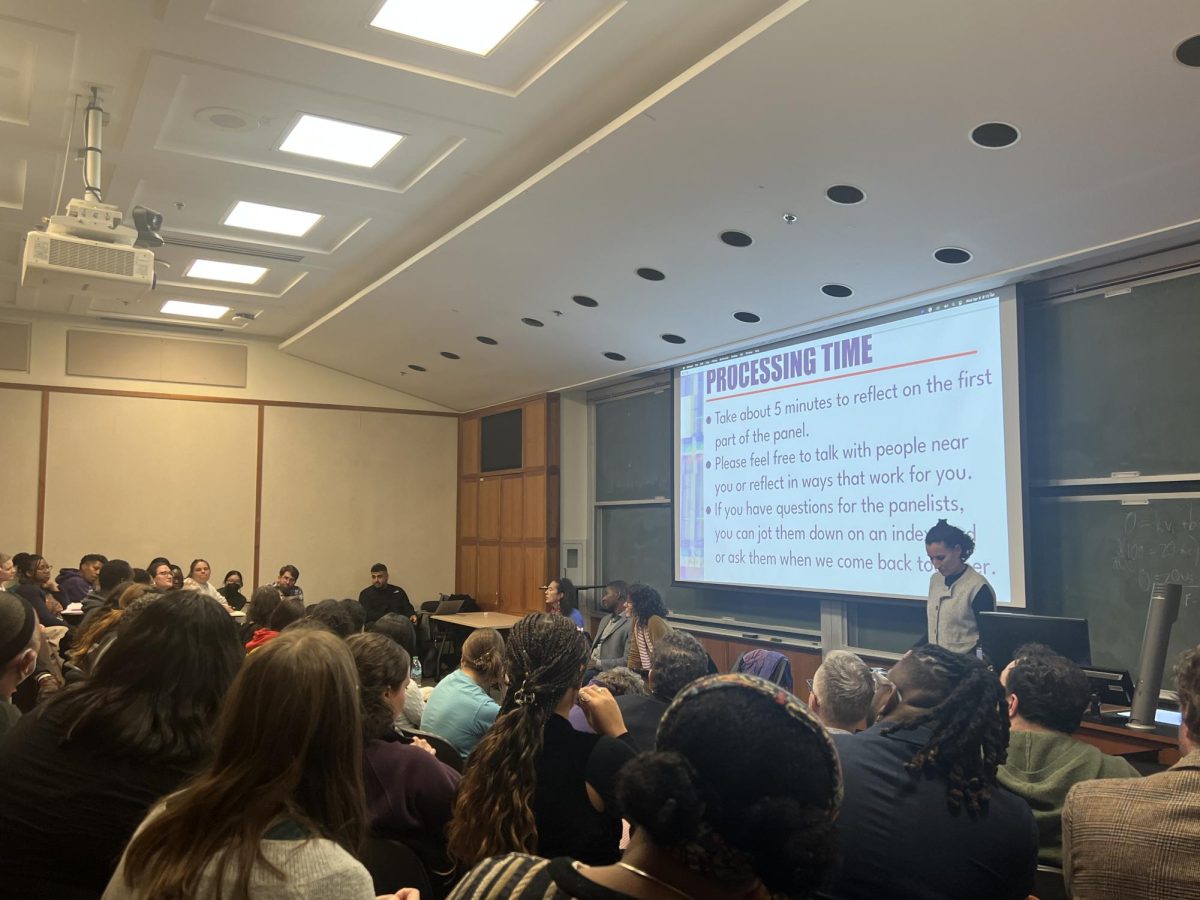The “Education Under Threat” event drew more than a hundred students, faculty and community members to Annenberg Hall Wednesday evening.
“Are we going to exist in a world, where all people have a right to live?” SESP Prof. Megan Bang said. “It’s as simple as that — that question is essentially what is being debated and being used as a way to set up authoritarian dictatorships in order for some people to flourish.”
The “teach-in” was a collective dialogue with the School of Education and Social Policy community and featured Profs. Quinn Mulroy, Kirabo Jackson and Bang. It was inspired by the “University Under Threat” event, according to Director of Teacher Preparation Programs Rebekah Stathakis, Assistant Coordinator of Programs at the Center for Talent Development Elise Zerega and SESP lab manager Rocky Myers.
Bang, Stathakis, Zerega and Myers were organizers alongside SESP Director of Faculty and Doctoral Student Affairs Megan Redfearn, SESP Masters of Education Senior Advisor Christin Glodek and NU and Evanston Township High School coordinator Kristen Perkins.
SESP Prof. Shirin Vossoughi moderated the teach-in. The teach-in began with Mulroy and Jackson discussing the threats to the education system at large. After the discussion, there was a break during which students could ask questions to the panel members or write them on index cards to be addressed at future teach-ins. Bang joined after this break, and another Q&A session was held.
“Today’s anti-DEI movement is not really a battle over DEI, per se,” Mulroy said. “These movements are part of the organized, historically grounded ideological struggle to actually reset the terms of how we run our institutions.”
Jackson, who is a labor economist, said the government threats are not just for higher education but K-12 education. He also stressed the role and importance of state and local governments in public schools.
Jackson added that federal funding for K-12 public schools — including Title I and other programs — is about 10% to 12%. He said that if funding was cut, he could see it disproportionately affecting low-income students and low-income rural and urban schools.
“When I think about what could happen — I think about what is legal and what is not legal — I don’t think we’re going to have a complete collapse of the education system,” Jackson said.
“What I see happening is that the government is using federal dollars as leverage to get institutions to do what it wants in areas which have nothing to do with education.”
Human Development and Social Policy seventh-year Ph.D. candidate and attendee Phoebe Lin said there is a lot of “crisis narrative and alienation” happening. She added she was not surprised by the Trump administration’s freeze of $790 million in federal funds for NU on Tuesday evening.
“You have to think about what you may need to personally sacrifice for collective well-being, so that’s the thing I am holding onto and thinking about ways we can continue the conversation,” Lin said.
Zerega, Myers and Stathakis emphasized the importance of students attending collective dialogues like this one so they can continue learning.
Myers said that they heard that in their labs undergraduate students felt disenfranchised and graduate students felt lost in the context of the funding cuts occurring.
“I’m nonbinary, I’m half Jewish and I’m half Mexican,” Myers said. “In my opinion, there’s nothing left for me to lose. There’s a lot on the line if we don’t act, especially when I see students’ visas being revoked. You have to do something now because it is going to be a lot harder later.”
Email: ridhimakodali2027@u.northwestern.edu
Related Stories:
— Faculty members express concerns at panel discussing political threats to universities
— Federal government freezes $790 million in funding for Northwestern
— Winiarsky: Trump administration funding freeze hurts everyone, not just those in the ivory tower







